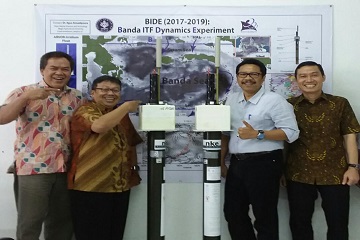Department of ITK of FPIK IPB Received Two Sets of Argo Floats

As part of the international maritime research collaboration between the Department of Marine Science and Technology (Department of ITK) of the Faculty of Fisheries and Marine Sciences of Bogor Agricultural University (FPIK IPB) with Laboratoire d'Etudes en Géophysique et Océanographie Spatiales (LEGOS), Toulouse, France, which was signed on 2010, recently the Department of ITK was granted two sets of Argo Floats scientific instruments for research and education purposes. This tool can measure the profile of salinity-salinity-depth at sea to 1000 m automatically and periodically.
The Secretary of the Department of ITK, Dr. Agus Atmadipoera, after signing the Material Transfer Agreement document (MTA) explained that the Argo profilers will be deployed in the eastern waters of Indonesia to support the study of Banda Indonesia-through flow Dynamics Experiment (BIDE) for three years (2017-2019). It aims of then project are to study the dynamics of upwelling, stratification and mass mixing of ITF Banda water, as well as ocean-atmosphere interactions. BIDE research is funded partially by the Ministry of Research, Technology and Higher Education (Kemenristek Dikti) RI. The Project involves graduate students of IPB, and scientists of research centers and universities in eastern part of Indonesia.
Argo Float's program is under the coordination of the Intergovernmental Oceanographic Commission (IOC-UNESCO), it is an international project to collect information on the temperature and salinity of the upper part of the world's oceans. Argo uses robotic floats that spend most of their life drifting below the ocean surface. They make temperature and salinity measurements when they come up to the surface and after transmitting their data to satellites, they return to depth to drift for 10 days. Argo data are used by weather and climate centers to help understand the way the oceans affect climate. These centers are working to improve forecasts of El Nino events and to understand other climate features like monsoons and global warming for wider users including fishermen. (Wied)


